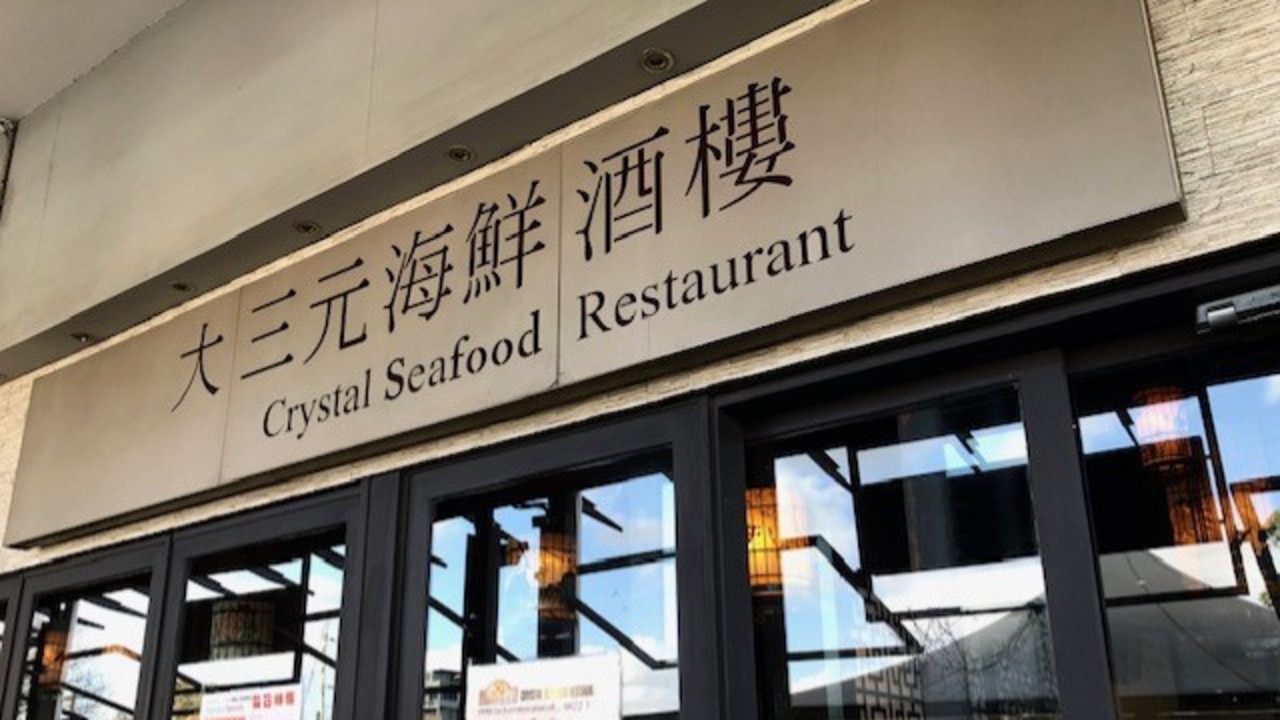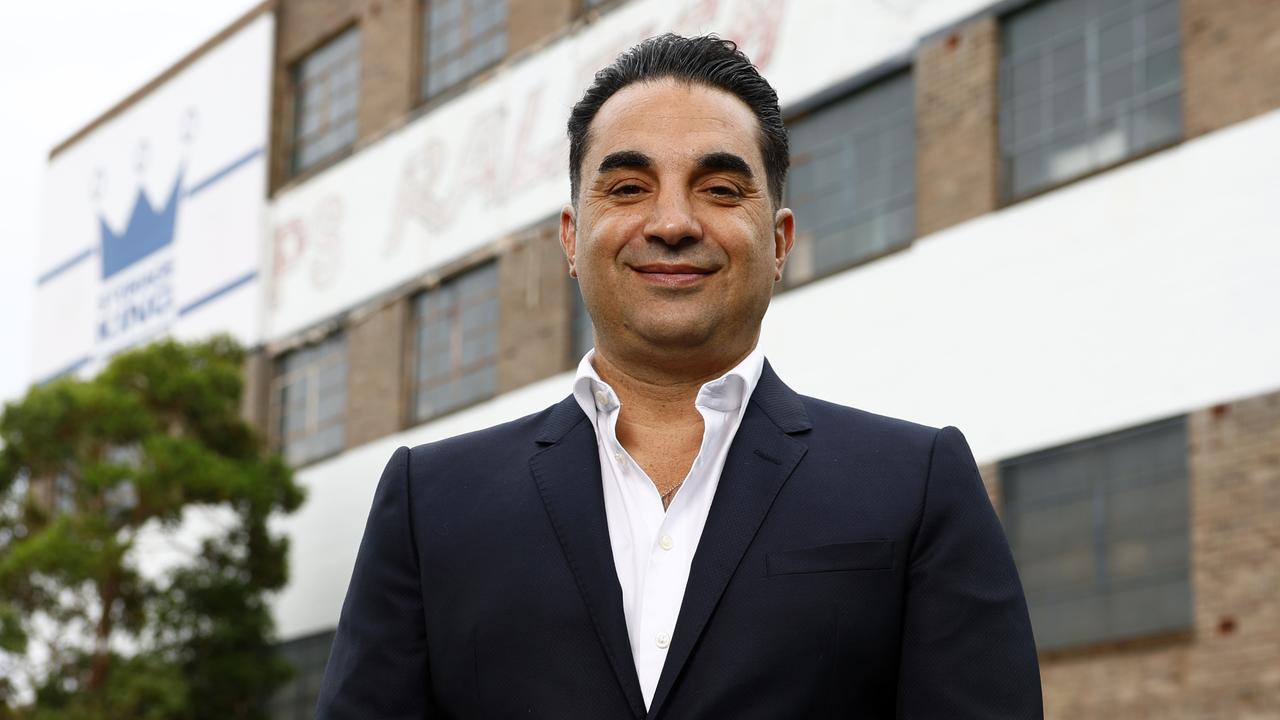‘We side hustle to keep our dreams alive’
More and more NSW small business owners – smashed by taxes, rising costs and fighting a ‘Covid hangover’ – are taking second jobs to make ends meet.
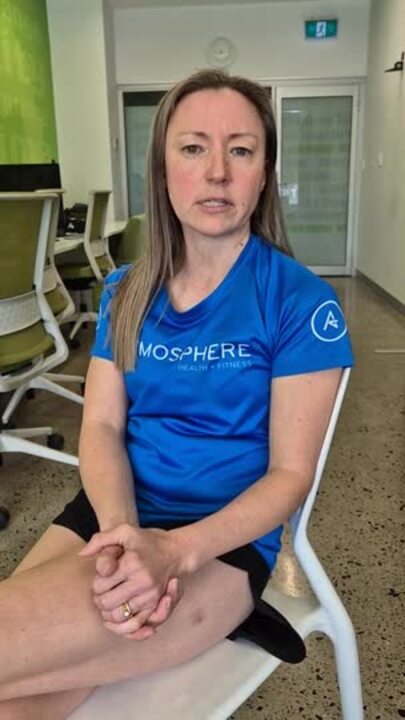
NSW
Don't miss out on the headlines from NSW. Followed categories will be added to My News.
After three decades operating small businesses, Campbell MacLeod never thought he’d need a “side hustle” to keep the doors open.
Yet the “Covid hangover” has meant both he and wife Tania have had to seek out second jobs to keep their businesses afloat as costs increase exponentially, while custom remains lukewarm.
Campbell is doing consultancy work for other businesses while running their cafe, The Stage Door Espresso at Bella Vista metro station, while Tania has taken on work as a counsellor to supplement the income from their longstanding business, Stage Door Performing Arts.
Covid restrictions crippled both businesses from mid 2020 to late 2021, and now cost-of-living pressures are impacting their ability to regain lost ground.
“Things began to open back up, (then) inflation hit – we’ve had 14 rate rises in two years, energy bills are up, insurance bills are up,” Mr MacLeod said.
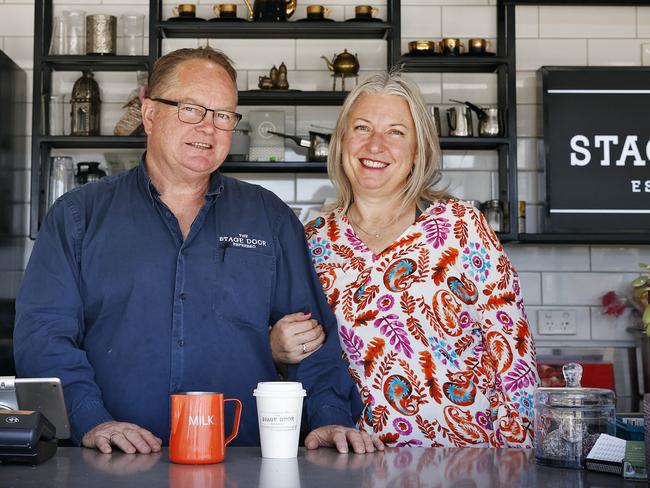
“Pre-Covid, our energy bill was $3000 a quarter – last quarter it was $6000; our mortgage has risen from $500 to $800 a week; wages and super have risen. Yet we can’t justify increasing our prices to suit.
“How much can you charge for a sandwich?”
More and more small business owners are being forced to moonlight in other jobs to make ends meet. Significant numbers of micro and small business owners surveyed by Business NSW last month confirmed they had taken on a second job in the past 12 months to survive.
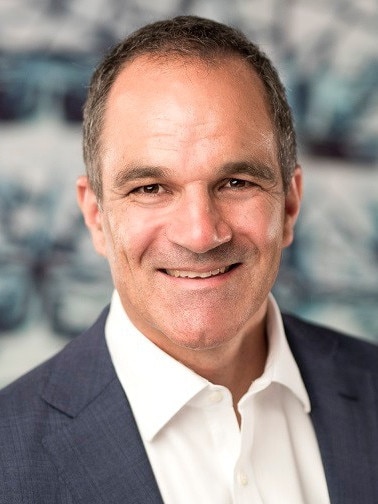
Business NSW CEO Daniel Hunter said rising expenses – particularly energy, wages and insurance – were “crippling” the small business sector.
“In small business when times are tough, business owners are often the last to get paid – often not drawing a salary at all so the bills can get paid,” he said.
“Now, more and more business owners are telling us they’re having to go one step further and take on second jobs just to keep their operations running.
“So they’re having to work around the clock which is leaving them less time and energy to focus on growing and driving innovation in their core business.”
Mr Hunter said small businesses across NSW needed additional support, or there was a risk innovation and growth would be stifled across the sector.
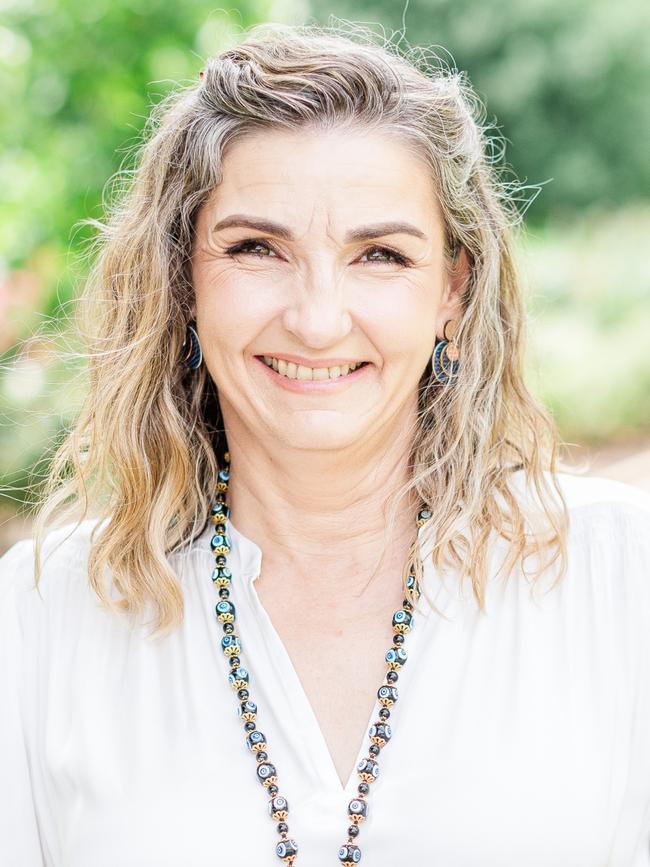
Justeen Kirk runs a business consultancy firm, ISO Matters, in Wagga Wagga. She said small businesses were struggling to pay for services like hers, so weighed down were they with non-negotiable costs like wages and taxes.
“We help other businesses develop their management systems, processes and policies,” she said.
“But many businesses don’t have the confidence to spend or invest in services like this – it’s not that they don’t recognise their importance, they simply don’t have the money.”
For Ms Kirk, it has meant taking on two days a week work with a former client to help pay the bills, and herself.
“If the government could give us some kind of tax relief – it sometimes feels like all we pay is tax, income tax, company tax,” she said.
“It’s NSW Small Business Month in October, yet there’s no government funding forthcoming for our local chamber of commerce or councils to put on business workshops – there needs to be more funding for advice and upskilling.
“In regional areas, we don’t have access to the millions of potential clients as in the cities. We need to see some investment in our small businesses who are often part of the fabric of their towns. If they all disappear, the towns disappear.”
It’s a stark reality for many, with new Business NSW figures revealing in the last financial year, NSW accounted for 42 per cent of all business insolvencies in Australia – against only 31 per cent of the country’s population. And in the five years since the pandemic, NSW was the only state which has seen average yearly insolvencies increase.
Mr Hunter said Business NSW data over the past month showed 38 per cent of businesses said taxes and government charges were the biggest barriers to business expansion.
“Government needs to find solutions to support small business so that they’re not forced to close down, or sacrifice their primary business for financial survival,” he said.
Lowering payroll tax levels, reforming the Emergency Services Levy to reduce the pressure on insurance premiums, and establishing a new energy advice and support program were some of the measures the NSW Government could take to support the sector.
“We have the highest payroll taxes in the country,” Mr Hunter said. “Removing the emergency service levy from insurance should lower premiums by 20 per cent.”
Federally, a permanent increase to the size and scope of the instant asset write-off would help small business.
Business NSW is also calling on the Federal Government to wind back its decision to reduce the number of international students from next year – as these students are vital in helping keep the doors of NSW businesses open.
“We’d like to see all governments increase funding for vocational education and training as businesses are struggling to get the skills and labour they need,” Mr Hunter said.
Continued investment in boosting housing supply across the state was also vital with business surveys identifying lack of housing close by as a major barrier for attracting staff.
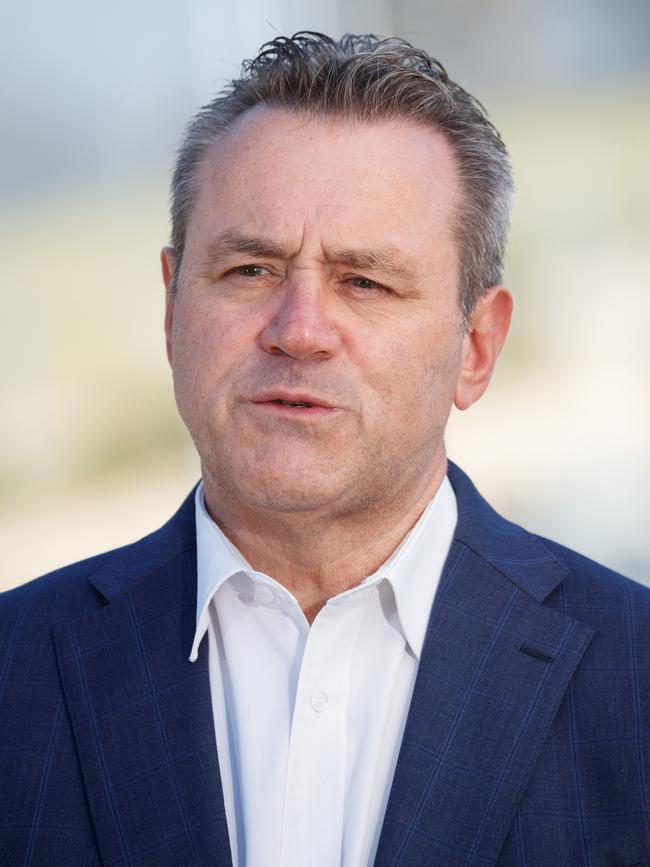
NSW Small Business Minister Steve Kamper said he had represented small businesses for 30 years, witnessing the ups and downs first-hand, and acknowledged that they were currently facing “incredibly tough economic headwinds”.
He said the NSW government was focused on three things: removing barriers for business; providing targeted relief; and creating more opportunities for business.
This included the launch of the Business Bureau in October 2023, which had since serviced more than 160,000 business inquiries and delivered more than 24,000 hours of personalised support to small businesses across the state.
“The Business Bureau’s rapid response team has also been able to provide intensive case management to business impacted by tragic events,” Mr Kamper said.
“We have delivered more than $1 billion in targeted cost relief through energy rebate and toll relief programs. We have also made sweeping changes to government procurement to get more money flowing into NSW small business.”
Mr Kamper said the government recognised restrictive regulations have put a stranglehold on the state’s economy, and were doing more to.
However, small business owner Robyn Denis said government wasn’t acting quick enough to help the “little guy” which didn’t receive the same incentives as big business.
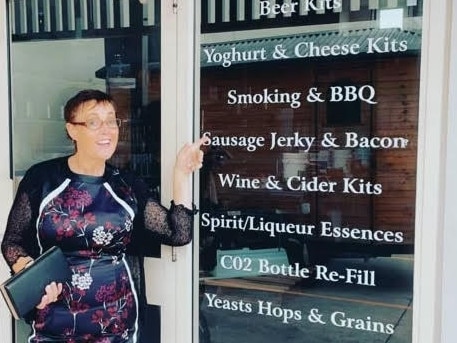
She started Southern Highlands Home Brewing in 2017 in Mittagong, adding a shop in Narellan in 2020.
The cost-of-living crisis has seen many of her customers pull back on discretionary spending, and she’s taken a second job in finance rather than let any of her staff go.
“I hadn’t had a wage in years and now my wage is being funnelled back into the business,” she said.
“The government needs to look at helping small business over businesses with head offices overseas – our money stays here, we employ local people.
“We don’t get any tax relief – I don’t want to be a GST collector for the government but I don’t have a choice. It’s as tough as it’s ever been.
“But it’s seven years of my life I’ve put into these businesses and I’m not just going to walk away with nothing.”
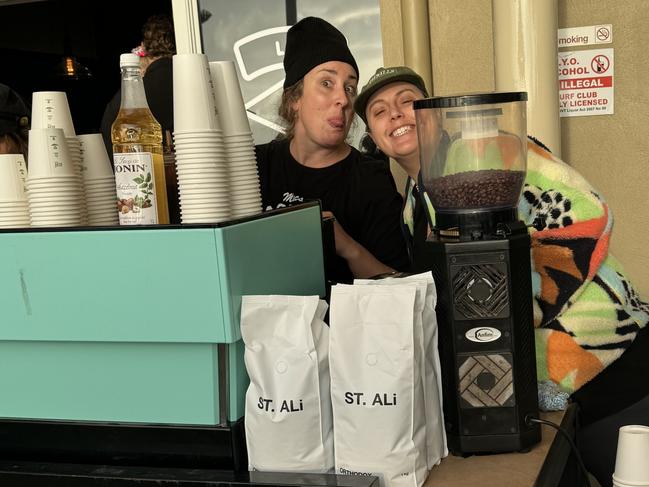
Rachel Wotherspoon, who opened Macs Beach Cafe at MacMasters Beach with her partner two years ago, has also had to take on a second gig, as a freelance digital marketer to pay for hiring a chef.
She said GST relief would be top of her wishlist from the government: “Everything we buy – food, coffee, milk – is purchased GST free, but as soon as we turn it into something and sell it, we have to charge GST.
“People say that 10 per cent was never ours but because other costs have gone up – for instance wages are now 40 per cent, not 30 cent – there’s just no room for more expenses.”
Do you have a story for The Telegraph? Email lisa.wachsmuth@news.com.au
More Coverage
Originally published as ‘We side hustle to keep our dreams alive’




